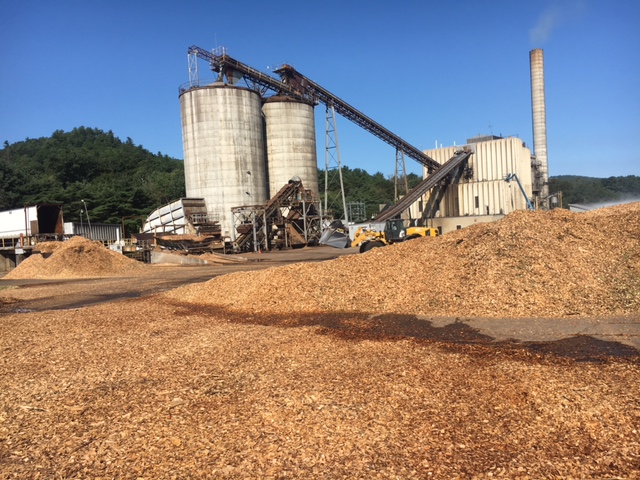By Michael O’Leary
asset manager of Bridgewater Power Company
There is a lot of misinformation on biomass and SB 365. Much of it is based on misunderstanding the facts. I am the asset manager of Bridgewater Power Company, one of New Hampshire’s six biomass plants. I have worked here since it opened in 1987. I have supported the industry’s role in providing good jobs and promoting sustainable forestry since the beginning. I have also been involved in Public Utilities Commission and legislative matters affecting the industry since that time.
Much of the opposition to SB 365 is focused on cost. Unfortunately, opponents of biomass plants are making repeatedly false claims about the industry, while ignoring its benefits.
A recent editorial by the NH Consumer Advocate included this quote: “Nobody organizes rallies to defend actions that will save residential customers about $10 a month on their electric bill.” I do not believe the Consumer Advocate intended to suggest SB 365 will cost ratepayers ten dollars a month, because that is untrue. However, opponents of SB 365 have seized on this line and are now proclaiming this as the impact on ratepayers. Again, it is not true.
SB 365 is a three-year program. Based on the Public Utilities Commission’s overall fiscal note on the bill, it appears the cost of SB 365 for a typical Eversource residential bill is about $1.78 a month.
Furthermore, the Consumer Advocate neglected to mention the cost of losing 100 MW of power if the biomass plants close. An industry expert testified to lawmakers if 100 MW were to leave the ISO-NE system and be replaced with new capacity, the cost increase to ratepayers would be $17 million annually, forever. That all but eclipses the proposed “savings” to ratepayers from the Governor’s veto. It’s a zero-sum game.
Next, opponents claim the biomass industry has received $2 billion in subsidies. This is wrong. In the mid-1980’s to early 1990’s, under state law, biomass plants and other renewable generators obtained contracts to sell power to local utilities. The pricing in these contracts was based on the purchasing utility’s forecasted price of power in the future, an estimate. This pricing was reviewed and approved by the Public Utilities Commission. It included no subsidy.
So what happened? The forecast was wrong. Prices were different than expected, but that does not constitute a subsidy. If the pricing had gone the other way, I find it hard to believe utilities would have graciously adjusted pricing upwards. To call that a subsidy is to say any business that lands on the favorable side of a contract is subsidized.
Ratepayers and taxpayers weren’t ripped off as opponents claim. Actually, there is great return on their investment. According to a 2016 Plymouth State University study, the biomass industry supports 900 jobs and $254 million of annual economic activity. Energy dollars stay in state and circulate in the local economy from the purchase of wood fuel. We have a healthy and modernized forest products industry. We have a useful combustion byproduct – wood ash, that helps the farm sector and municipal waste treatment plants. Most importantly, over the 30-years of biomass plant operations, wages and benefits paid to plant employees are in the range of $270 million to $300 million. Clearly, the industry provides a livelihood for NH families. Each plant is a hub in an economic wheel in areas of the state where that activity is crucial.
Critics claim everyone should compete in a competitive market, but no such market exists in the energy sector. All forms of energy have received incentives at different points in time. For example Northern Pass was slated to receive a federal incentive of a 12.56% equity rate of return regardless of performance. The natural gas-fueled Mystic Generating Station in Massachusetts needs and is seeking a higher-than-market rate to continue to operate. Nuclear facilities across the country are on the brink of closure in today’s market and seek price support. All power generation is subsidized in some capacity to ensure reliability and to meet demand.
The three-year incentive given in SB 365 protects a vital industry that produces necessary power and promotes healthy forests. SB 365 allows biomass to compete on a more level playing field.
All states use energy policy to spur local job creation and retention, renewable energy and local economic development. We should do the same. I hope lawmakers examine the facts and realize a veto override vote on SB 365 is the right thing for New Hampshire.
Views expressed in columns and opinion pieces are those of the author and do not reflect those of InDepthNH.org.





